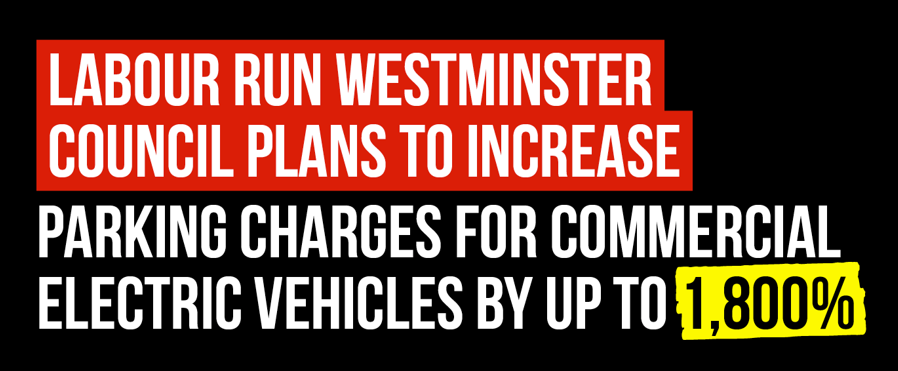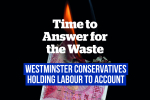

Labour-run Westminster City Council ran a public consultation from 15 January 2024 to 14 February 2024 on raising the costs of pay-to-park and residents' parking permits. This was always going to be controversial, so they promised a consultation to find out what local people thought.
But they didn’t wait for the answer before pushing up prices. And now we know why!
“The point of consulting is to listen to what residents have to say,”
says Tim Barnes, Parliamentary Candidate for Cities of London and Westminster.
“If you ask people and nine out of ten say don’t do it, you shouldn’t just do it anyway. Labour put the prices up before the consultation results came out to try and hide from listening to what local people had to say.”
The new pricing started on Monday 8 April before the consultation results came out on 12 April 2024.
The consultation document shows that of the 371 responses, 341 were “mostly expressing concerns or opposed”.
Cllr Ed Pitt Ford, minority group lead for sustainable transport, commented,
“The Labour administration argued that this is not a referendum on parking charges; I would argue that when you are ignoring 90% of people responding, this is no longer a democracy!”
It’s not just bad for residents, it’s bad for the environment.
The pay-to-park pricing changes saw electric vehicle charges increasing by over 1,800% in some areas and was widely reported in the press. The charges for some petrol vehicles fell despite council claims that this was a switch to emissions-based charging.
For resident permits, charges for electric vehicles were introduced for the first time. Previously electric vehicles were exempt to encourage people to switch to cleaner cars.
One in four people said the new charges would make it less likely they would have an electric car.
Labour less worried about hurting those with the least to spare.
29% of respondents cited that the proposals were about raising revenue rather than protecting the environment which was re-enforced by the old charging system being described as “unsustainable” by the council. The responsible Cabinet Member claimed that the new charges were required to ease congestion, but no data on congestion appeared in the reports, and the cabinet member did not make an effort to produce any when questioned.
The council acknowledged the disproportional impact on low-income groups; however, it defended this position by saying that that is not a protected characteristic as defined by the Equalities Act 2010. A damning position considering the Labour administration strap line of “A Fairer Westminster”.
The extract from the consultation response reads,
“It is true that the EQIA highlighted low-income groups (LIGs) as a characteristic that could be impacted disproportionately by our proposals. However, although LIGs are considered within WCC’s EQIAs they are not a protected characteristic as defined by the Equalities Act 2010.”
Cllr Tony Devenish AM, the GLA member for West Central, said,
“Londoners are tired of their representatives not listening. Sadiq Khan and his Labour colleagues do what they want, whatever residents say.”
The full results of the consultation being ignored by Labour Councillors can be found here.






